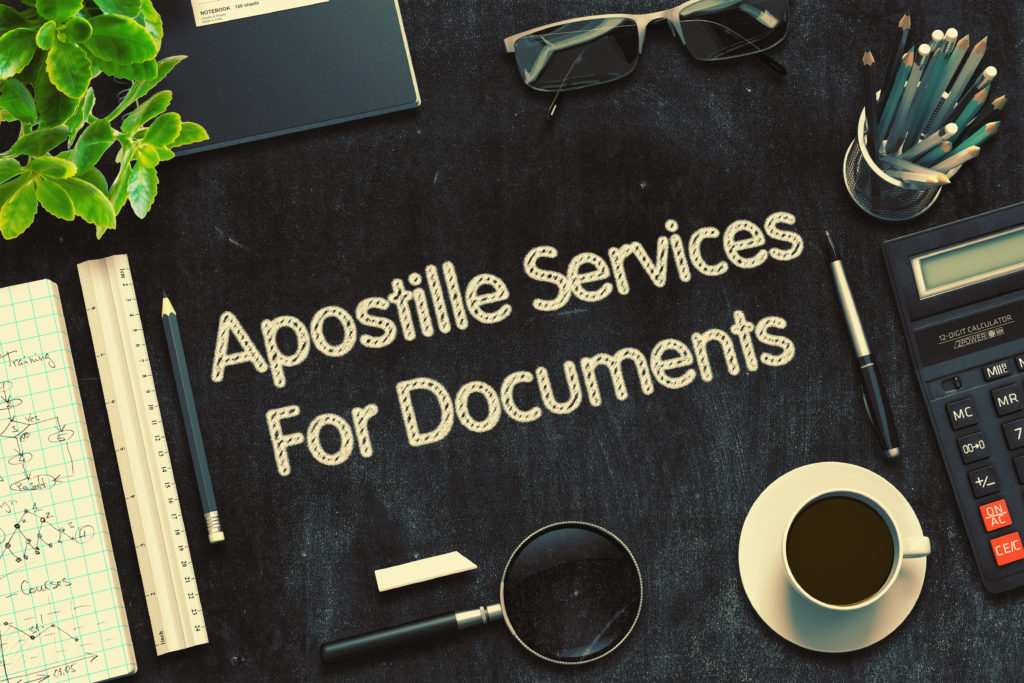Traveling is one of the great joys of life. Nowadays, it is becoming more and more common for children to be jet setters. Even babies have passports now. Furthermore, school trips now go far beyond local museums. In fact, it is no longer unheard of for children to travel without their parents. For this to happen, you will need a travel consent form. In this article, we will go over everything you need to know about child travel consent forms. Bonus! You can enjoy some tips and tricks for the child traveler.
What is a Child Travel Consent Form?
A child travel consent form (CTCF) is a document that allows a minor (a person under the age of 18) to travel without the company of their parents or guardian. In terms of air travel, kids between the ages of 5 and 18 can fly by themselves. Kids in this position are typically referred to as unaccompanied minors.
There are a number of situations in which this may be necessary. For example, a child may go visit their grandparents in another state while their parents are away on a work trip. Furthermore, oftentimes children will accompany a friend, extended family member, coach, or educator on a trip. In these cases, and many more, a child would require a child travel consent form.
Airlines, rightfully so, have really cracked down on enforcing these documents. Properly filled out and notarized child travel consent forms actively fight child abuse and abduction. Sadly, an alarming number of children are victims of trafficking or abduction. Awareness and preparedness are your best friends when preparing your child to travel solo, or without your company. A child consent form is a vital element in said preparations.
Parental Consent Form
In your research preparing for solo child travel, you may also come across a document called a parental consent form. Simply put, this is just another name for a child travel consent form. In fact, this is one of many names that a child travel consent form may be called. Additionally, a CTCF may be known as:
- Travel Permission Letter
- Child Travel Consent Letter
- Consent Letter for Children Traveling Abroad
- Travel Permission Letter
- Child Consent Certificate
These document titles vary by state and country. However, they all serve the same purpose. The above documents all legally verify that a child has been given permission by his or her parents to travel alone or in the company of an appointed guardian.
Child Travel Consent Form Template
As with any official document, there are certain elements required within a valid Child Travel Consent letter. Below are the six primary components that should be included in your CTCF.
- Child’s Information – Specifically, their name, valid passport information, and place of birth
- Travel Companion’s Information – If your child will be traveling with a guardian or chaperon, you need to include that person’s name, valid passport details, relation, and child custody information
- Permission – Naturally, a consent letter needs to offer just that – consent. In this section of the form, the legal parent or guardian should detail their permission to travel. Additionally, they should include their name and detailed contact information
- Special Needs – It is important to list any allergies or special needs that the child may have
- Travel Information – CTCF’s are not catch-all documents. Meaning, they are only valid for specific travel occasions. Therefore, it is essential to list the details of your child’s trip. Be sure to note the city where their journey begins and ends, with any relevant information in between
- Signature – Whoever is giving consent, whether parent or guardian, must sign the form and have it notarized
Naturally, the specifics of these forms may vary depending on what state or country you live in. Fortunately, the U.S. State Department of International Travel can help you determine what is necessary for your child’s origin and destination state/county.
What is a Notarized Letter?
Twice in this article, we have referenced that a Child Travel Consent Letter needs to be notarized in order to be officially recognized. This is an essential step that cannot be overlooked in the process of preparing this document. If you don’t already know, getting a document notarized is an incredibly common task. The notarization of a document is a powerful step in the fight against fraud.
Notarizations are simple tasks performed by a notary public. A notary public, or simply, notary, is an official representative of the secretary of state. Notaries act as an unbias witness to the signing of documents of great importance. Not only do they witness the signing itself, but they confirm the identity, willingness, and understanding of the signer. This seemingly simple act helps officiate and legitimize a document in the eyes of the law.
How to Prep for a Notarization
While not executed by lawyers, notarizations are important legal acts. Therefore, it is important to understand the process and come prepared for your notary appointment. Read on to see how best to prepare your document for an efficient and legal notarization.
1. Know What Type of Notarization You Need
Before you can get a document notarized, you need to know what type of notarization you require. There are three different types of notarizations: acknowledgments, jurats, and certified copies.
- Acknowledgments – An acknowledgment is considered a standard, basic notarization. A person must be physically present at the time of the notarization to personally acknowledge that their signature is authentic. There are countless examples of documents that require this type of notarization, such as:
- Child Travel Consent Forms
- Powers of Attorney
- Wills and Trusts
- Property Deeds
- … and many more
- Jurat Notarization – A jurat notarization follows the same steps as an acknowledgment, but with an essential added feature. During a jurat notarization, the notary public will read an oath or affirmation in which the signer must verbally accept. Non-verbal gestures, such as an affirmative head nod, are unacceptable.
- Oath – An oath is a solemn promise before God
- Affirmation – An affirmation is a promise made on your word, with no reference to a high power
- Both Oaths and Affirmations carry the same weight and promise that the contents of a document or testimony are “the truth, the whole truth, and nothing but the truth”
- Certified Copy – This is the least common type of notarization. In fact, many states do not recognize this as a legal notarial act. A certified copy is an official and exact replica of an important document. One might get a certified copy of a birth certificate or college degree.
You must know what type of notarization you require before your appointment. A notary public is neither qualified or legally allowed, to advise you upon which type of notarization your document requires. If you have any questions or doubts, contact your attorney for clarification prior to your appointment.
2. Bring a Valid Photo I.D.
The cornerstone of a successful notarization is correctly identifying the signer. In order to do this, you must bring an appropriate form of photo identification. Each U.S. state boasts different laws and requirements about what constitutes an acceptable i.d. for a notarization. However, a driver’s license or valid passport are the most commonly accepted forms of identification. If you do not possess either, be sure to look into other acceptable forms of i.d. for notaries.
Additionally, make sure your legal name matches the name on the document. This is primarily an issue for people having just been married or divorced. Whatever name is on your i.d. needs to match the name on the document you need notarized.
3. Understand Your Document
Properly identifying a signer is much more than simply looking at a photo i.d. card. In addition, your notary will ask that you understand the contents of the document you are signing in full. Be sure to thoroughly read and fact-check your document before visiting a notary. In the event that you have any questions or confusion, your notary is not meant to advise you upon these matters. In fact, your notary public cannot provide legal advice on the contents of your document whatsoever.
- Let’s quickly discuss the difference between an attorney and a notary. An attorney has successfully completed years of legal studies and has a license to practice law. On the other hand, most states do not require notaries to complete any training at all. The states that do require notary public training only mandate six quick hours of class. That is quite a bit less than the years of training and practice licensed lawyers have under their belts.
4. Complete the Document
Back in your grade school days, you wouldn’t show up to class with unfinished homework, would you? We all have perhaps done that once or twice, but don’t make the same mistake with your notarization. Think of the black spaces in your document like “homework”. Be sure to fill in all necessary information prior to your appointment. However, do not actually sign the document until your notary visit. Most states require that all initials and signatures be executed in the physical presence of a notary.
5. Bring All Necessary Signers
Often times, documents requiring notarization will require the signature of more than one person. When that is the case, you can expedite the process exponentially by bringing all involved persons to the same notary appointment.
On the other hand, it is incredibly common that this is simply not possible. Sometimes the necessary signers live in different states or even different countries from one another. Whatever the case may be, worry not. A single document can legally be notarized more than once. In fact, different notaries can even perform notarizations. However, as you may suspect, this draws out the process significantly.
6. Be Prepared to Pay the Notary Fee
It is an age-old adage that nothing in life is free. Therefore, you should be prepared to pay a small fee for notary services. However, you shouldn’t worry about breaking the bank. Notaries often charge as little as one dollar per signature. Naturally, prices vary widely depending on your location. Fortunately, states legally mandate the maximum amount notaries can legally charge, so you won’t get swindled. For example, in California, notaries can charge a maximum of $10 per signature.
On the other hand, there are a number of establishments that offer notary services for the low-low cost of free. Keep reading to find out where you can score these low-cost and free notarizations.
Where to Find a Notary
As previously mentioned, notary availability and pricing depend largely on where you live. Additionally, these factors can vary based on what establishment you choose to get your document notarized at. Luckily, there are literally millions of notaries in the United States alone, so you should have no trouble finding the right fit for you. Below are a few good places to begin your search.
1. Government Offices
Many documents requiring notarizations pertain to a financial or legal matter. Therefore, it should come as no surprise that many government buildings keep a notary on site. In-house notaries help expedite notarizations within the office. However, it is important to note that notaries are meant to serve the public. That is to say, even if you are not a customer or client of certain establishments, you are still privy to their notaries.
In your town or city, take stock of your local government buildings. Look for places like:
- Town or City Hall
- Your Local Court House
- County Clerk’s Office
- A Title and Registration Office
Depending on where you live, you can expect to pay around $5 per signature at the aforementioned local offices.
2. Banks and Credit Unions
When in doubt, a bank is always a good place to find a notary. Better yet, if you are a client of the bank or credit union, you may qualify for complimentary notary services.
3. Military Bases
Have you ever stepped foot on a military base? Some of the bigger ones are like their own tiny towns. In addition to on-base access to stores, doctors, and classes, you can also find a notary or two. More than likely, the fee will be minimal or non-existent.
However, not everyone can simply stroll onto an active military base. Access is typically restricted to active military, veterans, and their families.
4. Colleges and Universities
Similar to military bases, colleges and universities are often like their own little self-sustaining ecosystems. Many universities offer notary services to students and faculty as a school perk. Check your university directory to find out where you can find the school notary.
5. The Public Library
With the ever-growing popularity of the internet, books have all but become a thing of the past. If you were born in the last twenty years, there is a sad chance that you may have never even stepped into a library. Worry not, it is not too late to enjoy the many wonders of the public library! In addition to thousands of books, classes, and community events, you can also enjoy low-cost notary services. So dust off the ole’ library card, you won’t be sorry!
6. Insurance Agencies, Etc.
Like banks and government offices, many businesses like to employ a notary or two on site to increase efficiency. You will likely find a notary at:
- Home and Auto Insurance Agencies
- Real Estate Offices
- AAA Branches
- Your own office! Perhaps one of your coworkers is a notary and you didn’t even know it!
7. Hotels
Whether you are traveling abroad or enjoying a stay-cation, a hotel is always a good place to find a notary. Especially in five-star hotels, you may be able to enjoy the convenience of a notary at your fingertips as a hotel guest. If your chosen hotel doesn’t have a notary on site, perhaps the kind folks at the concierge can point you in the direction of one.
8. Mobile Notary
For the creme de la creme of notary services, you can enjoy the convenience of a mobile notary. Why bother scouring the streets for a notary when they can come to you? Many bigger cities are flush with mobile notaries ready and eager to help you at your home or workplace. Convenience does, however, come at a cost. The actual notarizations are subject to the same price-cap as regular notaries. Although, mobile notaries can charge an additional fee to cover the time and expense of traveling to you.
Tips for Children Traveling Alone
Now that we have sufficiently covered how to draft and notarize a Child Travel Consent Form, let’s talk a few more pro tips for traveling with children.
1. Have ALL The Necessary Documents
From i.d. cards to passports, be sure to leave no stone unturned when it comes to traveling with children. Especially when traveling to a foreign country, be sure to check and double check your destinations customs policies and requirements. Pro-tip from We 3 Travel – even if you are traveling with your own child, it is a good idea to have a Child Travel Consent Form with you. Additionally, it is a good idea to have a Child Medical Consent form handy as well.
2. Plan Travel Wisely
There are countless choices when it comes to choosing airlines and airports. Be sure to do your trip-specific research to set your child up for success.
- Airlines – Look into which airlines have the best amenities and reviews when it comes to unaccompanied minors. Learn from people who have done this before you. Their guidance can be invaluable in a situation like this.
- Flights – Whenever possible stick to direct flights. Even as adults, layovers and flight changes can be stressful and daunting. If a direct flight is unavailable, stick to transfers in smaller airports with at least an hour and a half between flights. Additionally, stick to flights with earlier departure times. These are more likely to depart on time and avoid cancellation.
- Airports – If possible, avoid unleashing your solo child into a massive metropolitan airport. Some airports have grown so big you have to take a train between terminals. If a big airport is your only chance, try to stick with your child until they make it to their gate.
3. Educate Your Child
Set your kid up for success by going over the plan in detail with them. Quiz them on their destination and who they are meeting on the other end. Equip them with multiple copies of flight and contact information.
The best education is the experience itself. If you have the time and the opportunity, try and travel with your kids first. That way, the basic feeling of travel will not feel so foreign and scary to them when they do it on their own. Travel is, and should be, fun!
Child Travel Consent: In Summary
The world is a vast and magical place, and should a child have the opportunity to see it, they absolutely should. However, appropriate research, preparations, and cautions should be exercised first. If a child is traveling alone, or with someone other than their parent or legal guardian, they are going to need a Child Travel Consent Form. This document helps protect our children from crime, trafficking, and abduction. Be sure to thoroughly fill out the Child Travel Consent form, and get it notarized. After all the necessary preparations are complete, the world is your oyster!
Sources
https://www.tripsavvy.com/parental-consent-forms-for-traveling-minors-3265651
https://www.notarize.com/blog/notarized-child-travel-consent-form
https://www.lawdepot.com/contracts/child-travel-consent/?loc=US#.XQqVeNNKjow
https://www.nationalnotary.org/resources-for/public/how-to-prepare-for-notarization
https://www.nationalnotary.org/knowledge-center/about-notaries/what-is-notarization
https://www.thebalanceeveryday.com/where-to-notarize-affidavit-896914
https://www.travelocity.com/inspire/12-tips-kids-flying-solo/




